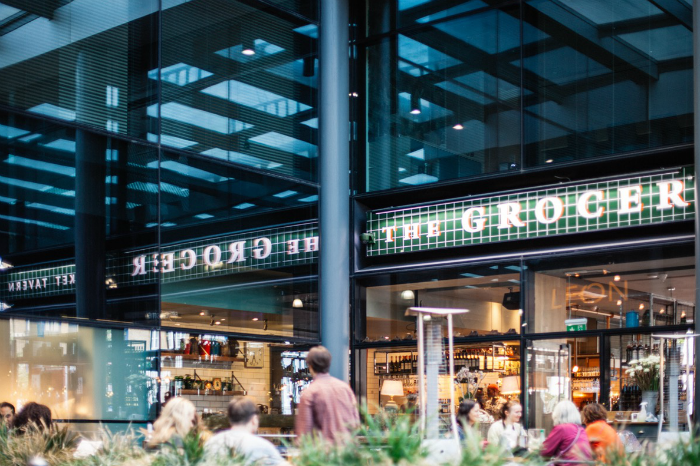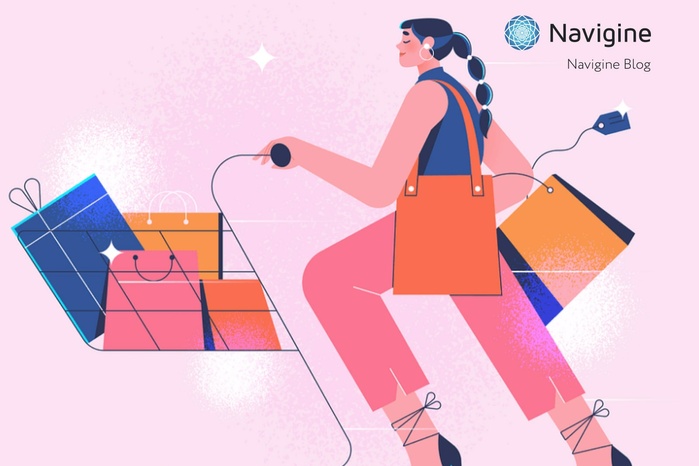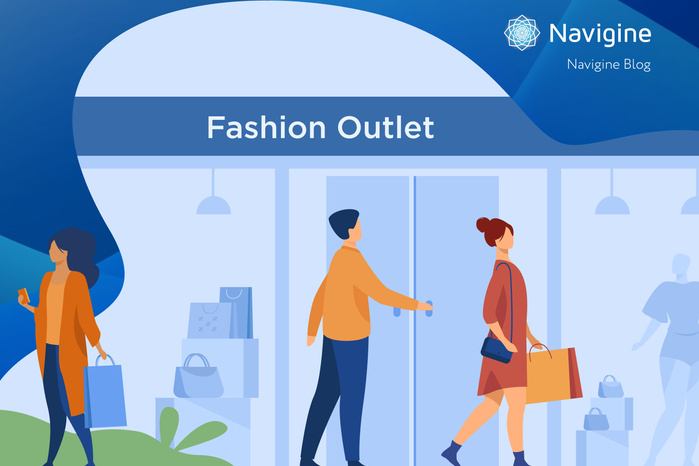- Beaconstac: 53% of customers would want to share their current location to receive relevant ads.
- Swirl: beacon marketing campaigns increase a likelihood of purchase by 73%. Personalized push notifications improve user engagement by 88% and increase the number of views on average by 300%.
- InMarket: interaction with advertised products increased by 19x for users who received a beacon message.
- Macy's: 70% of consumers tried a new CPG product or brand after seeing a mobile ad.
- McDonald’s: proximity marketing campaign helped achieve 20% conversion rate with 30% of users who received the promo.
The growing popularity of mobile devices is gradually changing the entire retail industry. According to Forbes data, 86 million consumers made purchases on their mobile device in 2016, and 96% of consumers used their smartphones to find the best available offers.
As consumers are becoming more and more mobile, they faster make a decision which product to purchase. For instance, most of them activate the promotional offer within the first two minutes after receiving it. Therefore, it is important for retailers to get as much data about the buyer as possible in order to correctly target and personalize the offer.
To meet these requirements retailers have started using Bluetooth® beacon proximity marketing. This is one of the types of marketing communications applying special sensors — beacons, in the immediate vicinity of the target audience. Beacons transmit information to the user's device when it is nearby.
By the end of 2015, the number of beacons was 5 million and for a year they made a qualitative leap by increasing the number to more than 13 million sensors. It is not accidental, as the largest retail players started to implement geolocation technologies in its business. Here are some existing results of using beacons:
The demand for an accurate navigation inside the premises is steadily growing, which means that the popularity of iBeacon technology is constantly increasing. According to the Deloitte report, by 2022, at least a quarter of all uses of precision digital navigation will include an indoor leg or be for an entirely indoor journey. Precise indoor navigation's potential is significant, is likely to benefit most vertical sectors, and have impacts on government, businesses and consumers alike.

Not so long ago, retail companies made a research in the US, which identified the main industry online-to-offline marketing trends:
- 3% of retailers can identify the buyer at the entrance to the shop, 72% plan to implement this within 5 years;
- 28% of retailers are using mobile marketing, 62% plan to start using within 5 years (56% plan to start within the next 2 years);
- The largest retailers (e.g., Macy's, Target, Walmart) are already testing mobile app with navigation and push notifications;
- 84% of people making purchases in the United States through a mobile device, make it directly in stores.

The experience of Western colleagues traditionally sets the trends in the European retail market. It is noteworthy that companies strive for non-traditional solutions of the application of beacons in their business and thus open new prospects for the development of this direction. We collected the most notable CIS and European cases:
Carrefour, Romania
The Romanian retail chain Carrefour has installed beacons in 28 hypermarkets in Romania. Using iBeacon technology the store offers its customers a simple, intuitive and fun app for navigation inside the store from shelf to shelf. In addition, the sensors collect the necessary behavioral data of visitors in the store. With help of beacons, Carrefour increased user engagement rate by 400%, and the number of users of the application grew by 600% in the last seven months.
Auchan, Ukraine
In Kiev, Auchan installed an IoT-solution, which notifies customers about discounts. For this purpose, the hypermarket has installed 200 Bluetooth®-beacons on an area of 33,000 sq. ft. Beacons send promo-notifications that are based on the buyer’s location. Developers also made a platform for Auchan, where marketers can create advertising campaigns and analyze the behavior of users in real time. The store managers can change the configuration of beacons network: area, time, frequency.
SmartCart, Finland
The Finnish company SmartCart has developed intelligent carts for grocery stores. For the development of this project, they used Bluetooth® LE-beacons-beacons, installed inside the stores. The finished solution looks like a regular trolley with a built-in tablet with such functions: shopping navigation, notifications about special offers, search of groceries, informational messages from the store, recipes. This is a real breakthrough in the retail industry. Now, during shopping, people always have a personal assistant who can save more time.
Ochakovsky, Russia
The manufacturer needed to develop a viral advertising campaign to promote the limited winter series of Ochakovsky kvass. It was decided to implement this project with the help of "smart skates", using Quuppa's Bluetooth® LE-beacons Locators (receivers) and tags (Bluetooth® beacons) on skates. Skates tracked each movement of skaters at the rink and displayed them on the screen. The campaign lasted two weeks and during this time, the advertising coverage was 6.5 million people and the video on Youtube collected more than a million views.
Hammerson, United Kingdom, France
Hammerson installed more than 6,000 beacons in its shopping centers in France and the UK to improve the personalization of the customer experience with a mobile application that quickly gained popularity among users. Now it is among the top 10 Lifestyle applications in France and the number of installations has already achieved 80,000.
And this is hardly a complete list of implemented projects. A demand for beacons is due to the fact that sooner or later the effectiveness of traditional POS marketing channels will keep gradually decreasing and customers will get tired of the usual discounts that often do not meet their needs. Therefore, companies integrate geolocation technologies into their business strategies to stimulate sales and improve the quality of customer service. Access to an accurate geospatial information becomes the basis of business planning. Companies analyze customer visits, purchase history, and time between transactions to predict the propensity to purchase. This helps them understand their customers and increase the effectiveness of personal messages and suggestions.
The implementation of beacons helps a business:
- Increase customer traffic to shopping malls and retail centers;
- Improve conversion and frequency of visits;
- Enhance targeted promotion and advertising campaigns.



